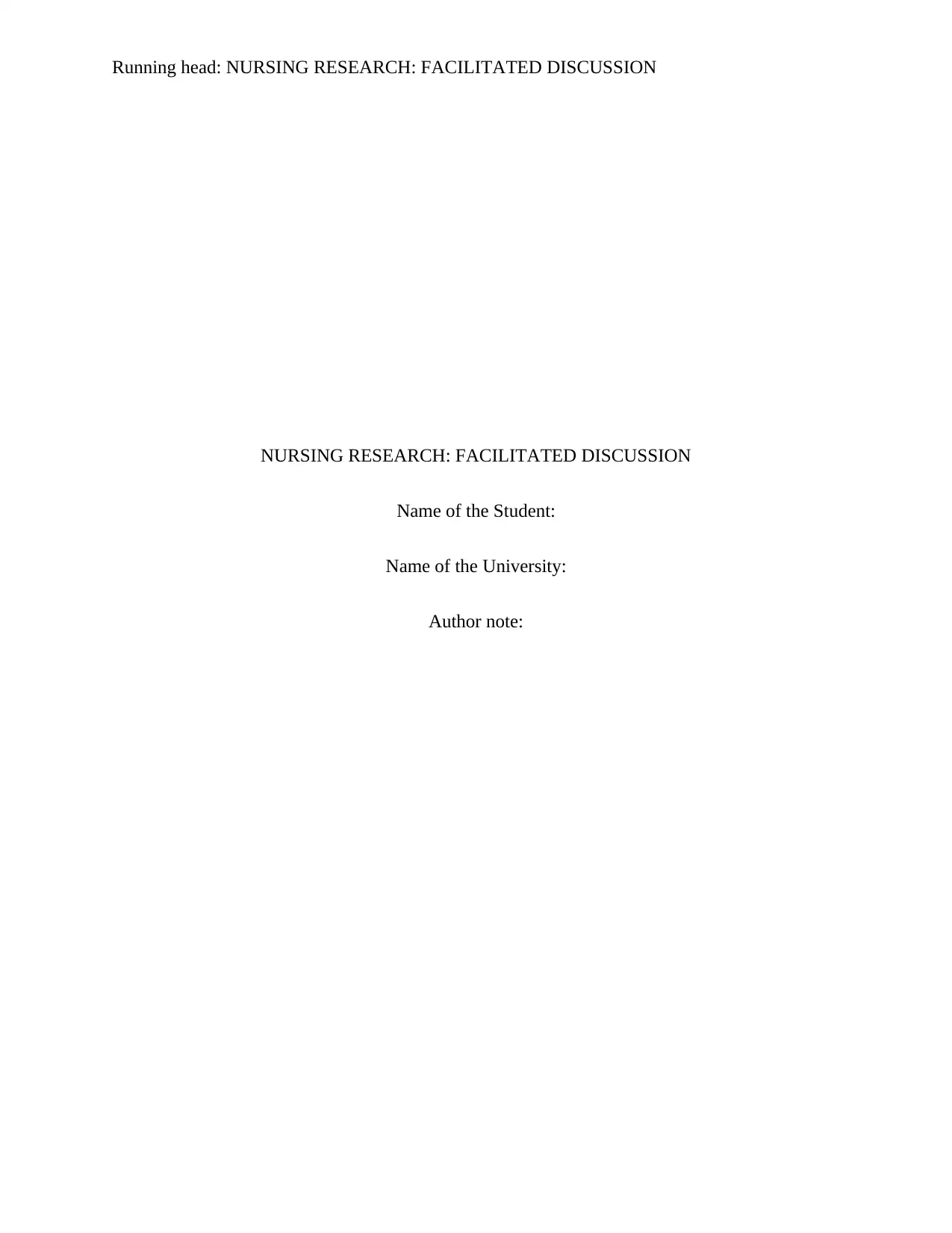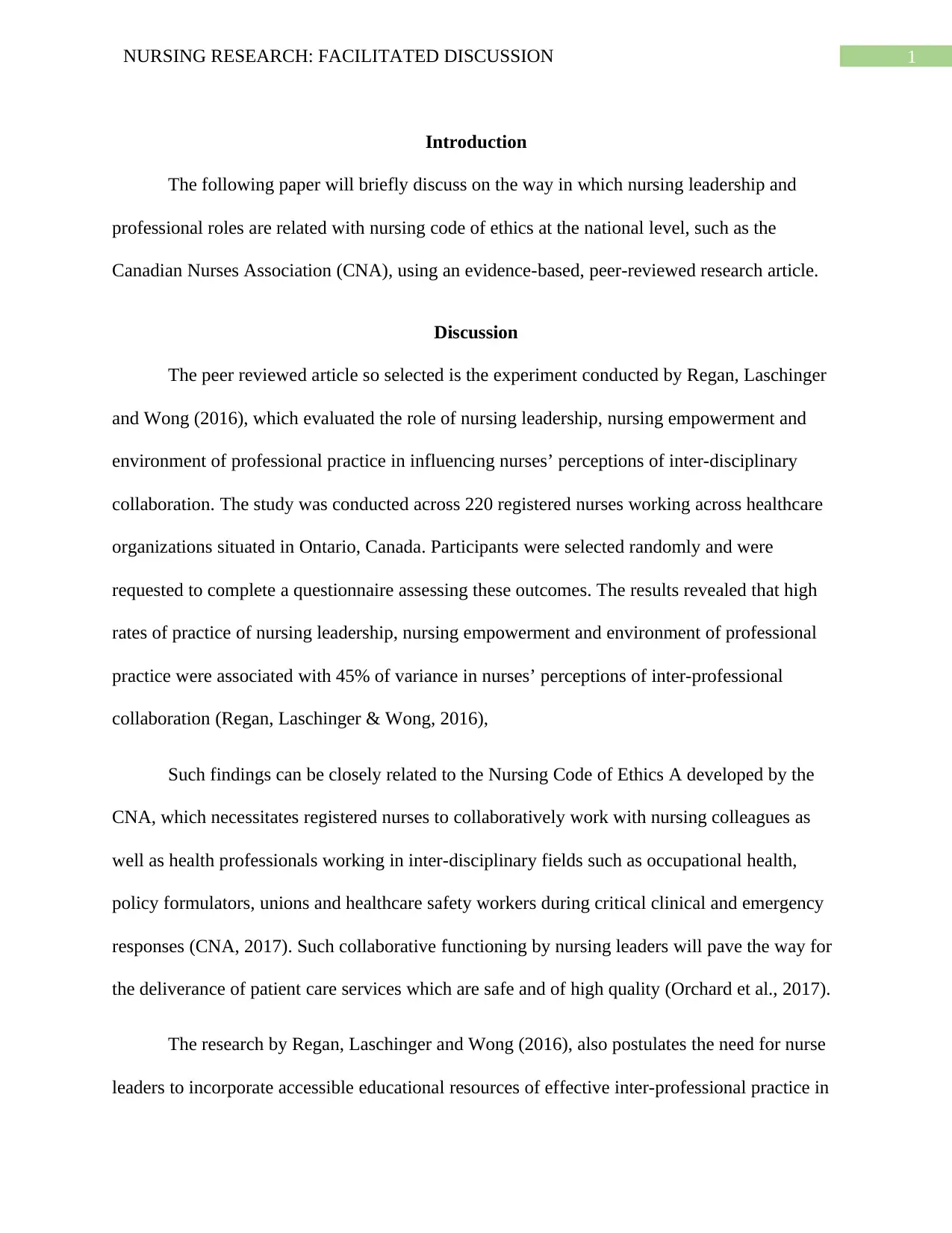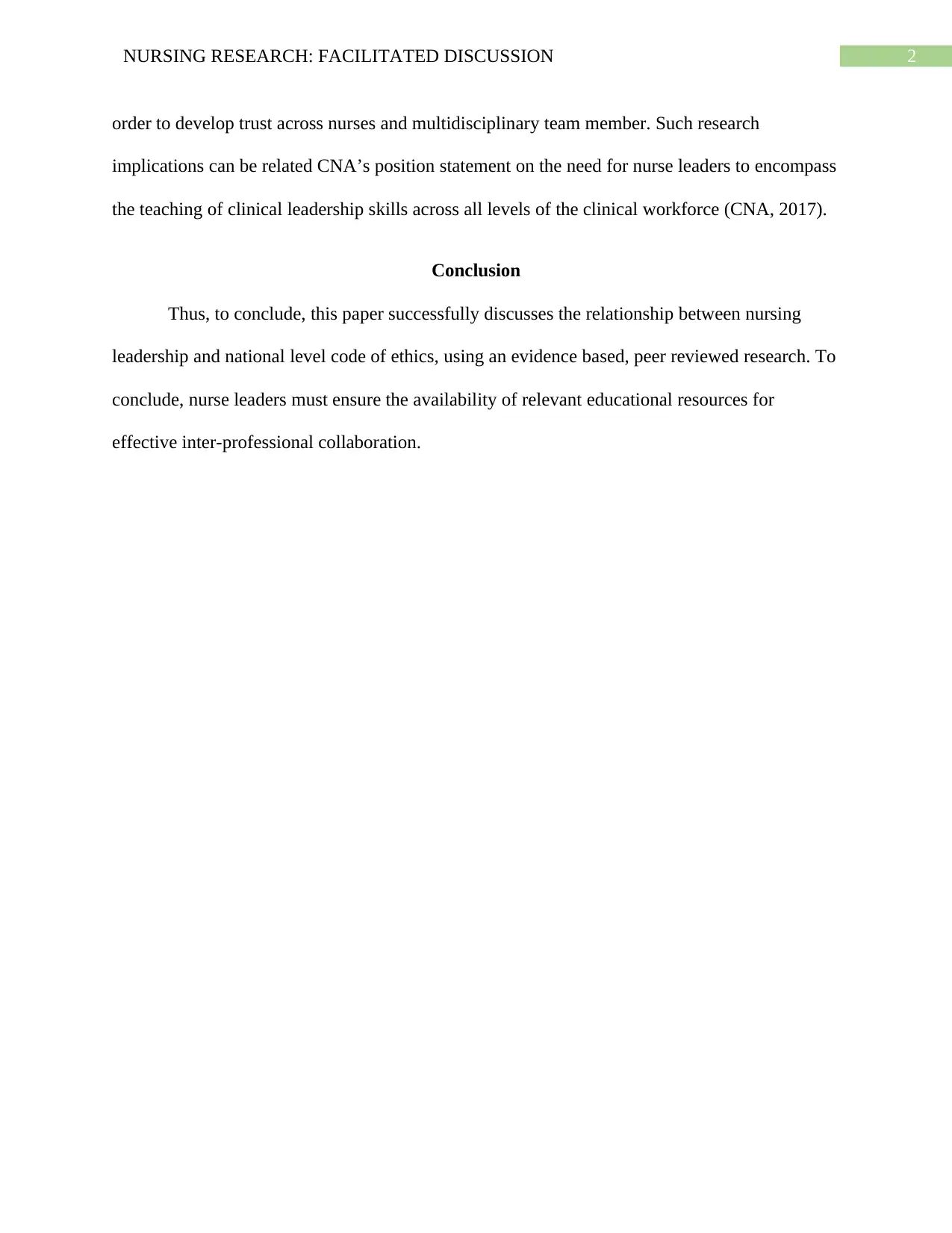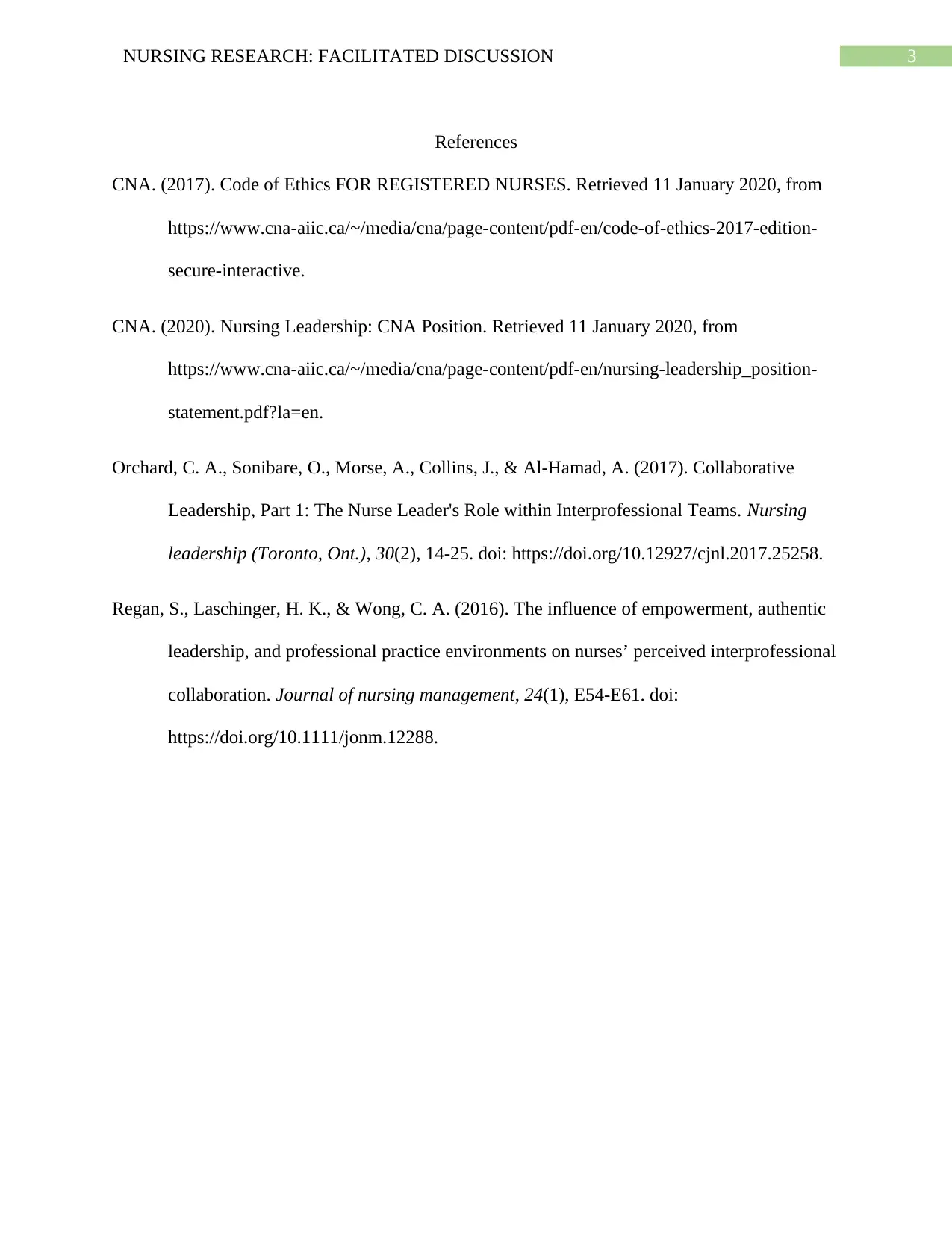NURS 3135: Leadership in Nursing - Professional Role Discussion
VerifiedAdded on 2022/08/26
|4
|593
|15
Discussion Board Post
AI Summary
This discussion post examines the relationship between nursing leadership and the Canadian Nurses Association (CNA) Code of Ethics, drawing on an evidence-based research article by Regan, Laschinger, and Wong (2016). The paper highlights how nursing leadership, empowerment, and a positive professional environment influence inter-professional collaboration, as demonstrated by the study conducted across healthcare organizations in Ontario, Canada. The findings are then linked to the CNA's Code of Ethics, emphasizing the importance of collaboration between nurses and other healthcare professionals. The paper also references the CNA's position on the need for nurse leaders to teach clinical leadership skills. The conclusion emphasizes the necessity of providing educational resources for effective inter-professional collaboration, which aligns with the CNA's ethical guidelines and promotes high-quality, safe patient care. The paper concludes by reinforcing the importance of nurse leaders in fostering effective inter-professional collaboration through the provision of accessible educational resources.
1 out of 4











![[object Object]](/_next/static/media/star-bottom.7253800d.svg)